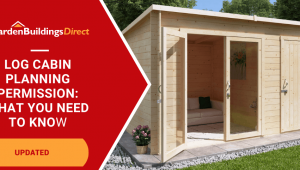Jump to:
A dedicated space for hobbyists means more freedom to enjoy their crafts. We’re not talking about the kitchen table or a home’s corner, but somewhere away from the main house, like in the garden. That’s where outdoor workshops come in, providing the perfect haven for pursuing old or new passions.
If this sounds like what you need, here’s why a garden workshop is ideal for your hobbies:
A Garden Workshop Gives You a Permanent Setup
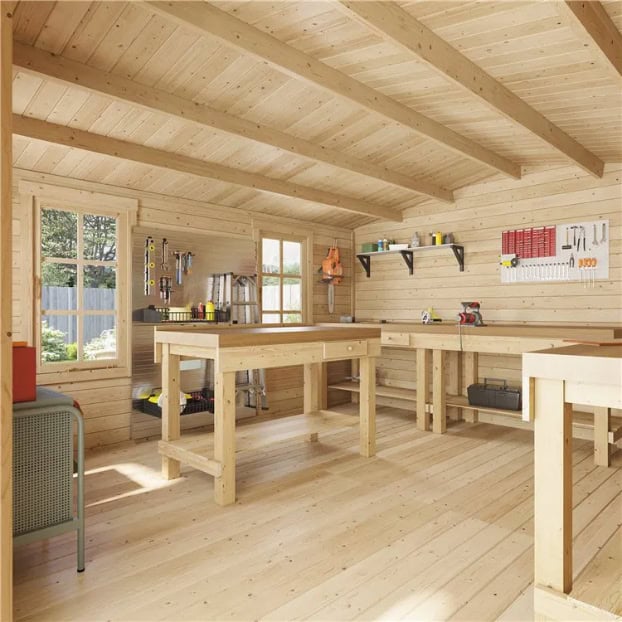
Having a garden workshop just for your hobbies is a real treat. You can furnish it with all the materials, equipment, and furniture you need without the hassle of packing everything away when you’re finished. For instance, you could set up your painting supplies by the window and display your finished artwork on the opposite wall. A few track lights above them would draw attention to your pieces.
If woodworking’s more your thing, a workshop gives you all the space you need to store your cutting, shaping, and joinery tools. You’ll have your workbench set up and all your power tools within easy reach, so no more working on an old table or the floor.
A log cabin shed is a style of garden workshop made from thick interlocking log boards, providing a warmer and more durable building than your average wooden shed. Choose these options for the most comfortable workshop environment for your hobbies.
Get More Organised with Extra Storage
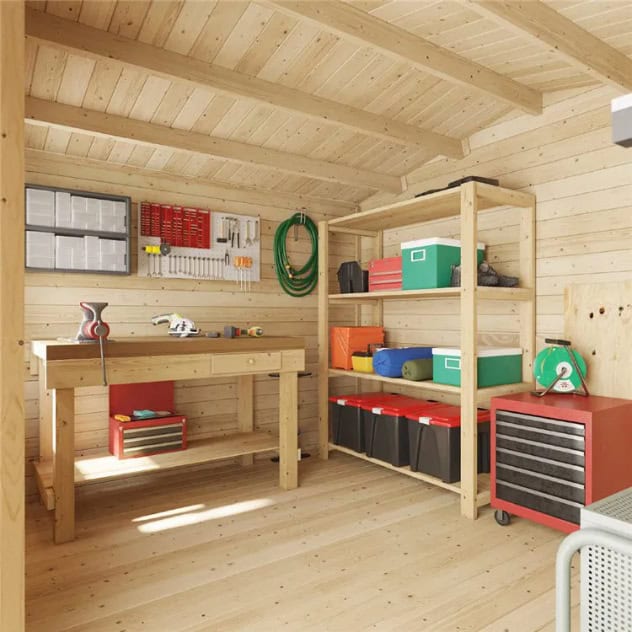
Gone are the days of cramming your DIY essentials into containers under the bed, inside an overflowing cupboard, or at the back of the garage. Now, you can have shelves, cabinets, and a workstation to keep everything in one place.
Take inspiration from the clever layout of the BillyOh Alpine workshop. The floor space is well-used, with a large pegboard on the wall to hang tools and even a garden hose. A side table offers plenty of room for tinkering, repairs, and maintenance work. With everything in its place, it becomes a pleasant space to get things done.
A Hobby Garden Workshop Means Creative Freedom
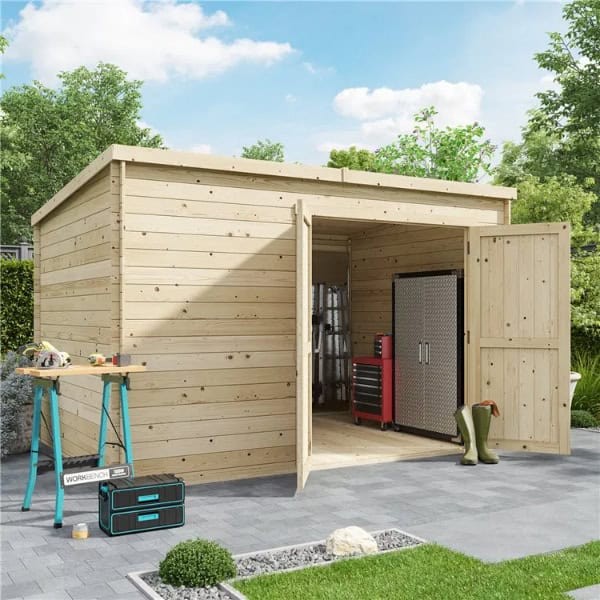
It’s so much easier to dive in when you don’t have to worry about making a mess or leaving things scattered around the workshop. You can leave things exactly how you need them, so you’re always ready to pick up where you left off.
If a project takes a long time to finish, you can step away and come back whenever it suits you. No more rushing or feeling stressed. Not to mention the peace and quiet that lets you focus, tackle bigger tasks, and get lost in the process. Tip: Just be sure you have a reliable shed door lock to keep your hobby space secure when not in use.
Overall, it gives you the space to take your time, try new ideas, and avoid the usual pressures. It’s your room to develop your skills, enjoy the process, and do it all without the distractions or limitations of shared spaces.
Enjoy Its Multi-Functional Use
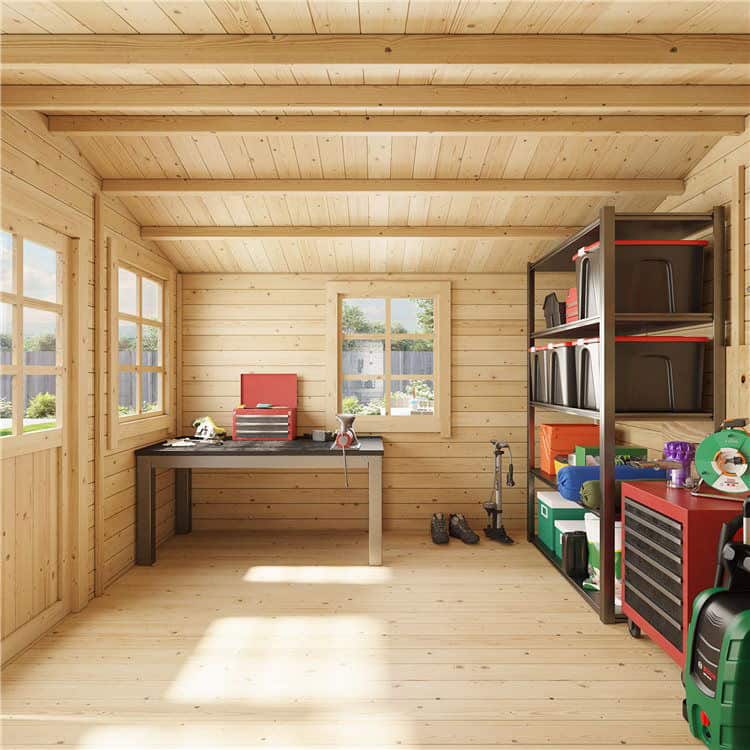
A garden workshop can offer more than just space to work on your hobbies. It can also double as a storage area, especially if it provides ample room!
It’s time to clear up valuable space inside the house, the garage, or the bedroom. You can store craft materials, tools, paints, and other supplies, as well as seasonal items and outdoor gear you don’t use daily. Adding pegboards and more wall shelving units will expand your storage options, too.
There are so many types of hobbies a garden workshop can be used for:
- Model making and painting
- Tabletop wargaming with friends
- Project planning
- Photography and filming
- Music practice
- Bike or boat customisation
- Building new fixtures for the home
- Arranging all your tools as a tradesman
The possibilities are endless!
You can do all this with the BillyOh Clubman. It’s a heavy-duty log cabin workshop with plenty of internal space and easy access, thanks to its double doors.
Round-up
A garden workshop is a great way to give your hobbies their own space. It provides a permanent setup and more storage and helps you maximise the space’s potential. Most importantly, it allows you to step away from the usual indoor limits and gives you the freedom to work on your crafts.
Ready to make the most of your hobby in a garden workshop? Browse our range, including metal garden workshop options!
Next on your reading list: What’s the Best Sized Shed for Your Garden Workshop?




